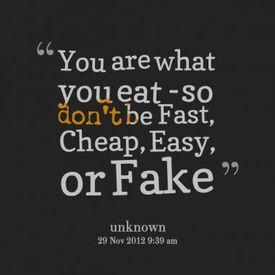Organic? Genetically modified food?
Options
Replies
-
Your fact checking letter actually confirms what I said....that the NAS report stated overall crop yields did not increase (chapter 4). I don't care that crop yields increased for one strain of GMO one time in Africa. We can't base a generalisation on a single isolated case. Let's see what you think of the USDA's report that GMs have not increased crop yields overall....http://www.reuters.com/article/usda-gmo-report-idUSL1N0LT16M20140224.0
-
GMOs are not banned in Nigeria. They started growing maize and cotton last year.
http://www.premiumtimesng.com/news/headlines/204966-nigeria-deploys-genetically-modified-cotton-maize-despite-safety-concerns.html0 -
Article regarding study that shows while pesticide use initially decreased with GM crops, long term it has backfired and pesticide use is now at a net increase. http://www.reuters.com/article/us-usa-study-pesticides-idUSBRE89100X20121002. I suppose you could say that super weeds and resistant insects would have happened "anyway" but that just further supports the fact that there is no long term advantage to gm crops over conventional crops.1
-
from the point of view of someone who reacts to salicylate, I'm intolerant of the stuff, salicylate is the principal method many plants use to protect themselves from moulds and mildews and the like. My dentist calls me, "one of life's canaries in the coal mine" of the world we have created. I try to go as UK organic as I can. I avoid gm, its more easy here, because those foods will most likely have more salicylate in their composition than the regular version and they are problematic enough, needing to be avoided as a normal portion. My diet has to be very restricted to feel anything like well.
Immunology departments recognise my health issues but endo's and generalist medics, most have not heard of it, they also have not heard of "histamine intolerance", either. More of us are starting to react to the usual foods available to us. It takes real diligence to discover one's triggers especially when you are confronted by medical lack of knowledge.0 -
Zachbonner....just saying "GMOs are going to save the world" doesn't make it plausible. Firstly GMOs do not result in increased crop yields, or lower inputs (fertiliser, pesticide)...so if they don't produce more food than conventional methods, how can they save the world? No more people are being fed. Secondly, there is a growing number of scientific studies showing GMO food to be harmful to human health...so how is eating hazardous GMO instead of proven safe non GMO going to save these starving kids? You think third world parents don't care if they are given poison for their kids? Wow... Thirdly what about the expense of GM seed vs conventional seed...do you think these poverty stricken third world farmers can afford the higher prices of GM seed? And then the added expense of needing more pesticides and fertiliser to grow said seed? Even if I accepted that GMs were 100% safe and healthy ( which I personally don't as that hasn't been proven), the economics alone show that the same number of people can be fed FOR CHEAPER using cutting edge conventional non GMO farming.0
-
We've made some great discoveries in my lifetime to improve farmer's yields. There is now a wide range of pesticides that have a very short half-life so by the time the veggies are picked there is no residue to worry about.
There are improved storage techniques like storing in carbon dioxide where bacteria cannot grow.
Refrigeration and transportation means nearly everyone has access to fresh produce year round. I'm a grandmother now but I remember my grandparents ate nearly everything out of a can. Heck, they canned most of their garden. For them, canned meant botulism free.
And finally the whole natural selection thing means food has been changing all along. We adapt just fine.
Now we live in an upside down privilege-rich society that turns its nose up at a grapefruit but injects Botox on purpose.
3 -
Zachbonner.... I see you haven't posted any independent scientific studies to support your repeated disagreement whereas I have posted numerous sources for my assertions. I suppose I am to just trust you that GMOs increase crop yields long term am I? Or that your research into their safety is somehow more complete than my research? Then you close with a rallying cry of if such and such happened THEN we could grow GM cheaper...sorry I'm not interested in crystal ball what ifs, I deal in reality. GM costs of production are higher than non GM...that is the reality today. Same with your assertion the GM might one day get it right and create something that needs less pesticides/fertiliser instead of more...been waiting a few decades now...how long do we wait? Another decade? Too I find your whole attitude that third world countries are somehow clueless about how to farm and are just sitting around waiting for us rich western benefactors to ride in and rescue them with a silver bullet very disturbing. At best it is old western Imperialism and at worst racism. I would say you are thinking more like a traditional westerner than I am. I'll leave you with an article about African farmers. Cheers. https://www.theguardian.com/global-development/poverty-matters/2013/jun/24/gm-crops-african-farmers0
-
The short answer is "no" - but I live in Norway.
I'd say the main difference is how different countries produce their food and what kind of food they let into their countries. Norway is very strict.
When I am in the U.S. I tend to be more careful, simply because there is more crappy food around.1 -
Origin of hardy wheat. Without it farms around here would not have made it.
http://www.agr.gc.ca/eng/news/scientific-achievements-in-agriculture/from-a-single-seed-tracing-the-marquis-wheat-success-story-in-canada-to-its-roots-in-ukraine-4of11/?id=11813051783502 -
Woah, reading back, I missed this glaring error:studies that showed rats fed GMO corn developed tumours and died younger than rats fed non GMO corn.
You can't really be oblivious to the huge scientific coverage of that rat study that got it blasted to smithereens.
Do you get all your resources from the charlatans March Against Monsanto, Food Babe, Natural News, and David Avocado Wolfe?
6 -
domeofstars wrote: »Are you happy to pay more for organic food?
Do you avoid foods that are genetically modified?
Why?
No, I do not pay more for organic food. I do not avoid genetically modified foods. I have a tight budget. I buy food that fits my budget.
Good answer. Thank you.1 -
domeofstars wrote: »Are you happy to pay more for organic food?
Do you avoid foods that are genetically modified?
Why?
I'm not in the US, and I found a place that sold imported American foods. I was amazed at how many foods had genetically modified ingredients in them. I have family in the US and they pretty much buy organic all the time but they are rich...
We actively avoid Organic and "Non GMO" foods in our household (opposite of a lot of people.. I know). One reason for this is the fear mongering and non scientific community attacking scientists who come out in defense of non organic food. Organic and non GMO is a marketing ploy (the organic industry is worth 4 billion in the US annually), and does not denote a product is healthier.
https://med.stanford.edu/news/all-news/2012/09/little-evidence-of-health-benefits-from-organic-foods-study-finds.html
http://www.health.harvard.edu/blog/organic-food-no-more-nutritious-than-conventionally-grown-food-201209055264
http://www.businessinsider.com/economist-organic-foods-just-marketing-2012-9
Also- humans have literally been modifying food since we figured out we could do so thousands of years ago. Ever ate an almond? You can thank your ancestors for taking a poisonous plant and breeding the arsenic down for safe levels of consumption for that tasty nut.
https://en.wikipedia.org/wiki/Almond
https://www.geneticliteracyproject.org/2016/10/10/non-gmo-month-marketing-ploy-grounded-misinformation/
One of the biggest reasons we don't support the organic industry though is our personal beliefs and morals. Farming organic takes up more space then conventional farming. With a growing global population we already cant feed, supporting the growth of an industry that restricts the amount of food we can grow and wants to disband research into new crop techniques that could help grow crops in areas with less water (ie during drought), have resistance to bugs (less pesticide), and more nutrients (golden rice is a prime example of this). We don't feel right giving our money to these companies.
This is my thoughts exactly.1 -
n1cholee93 wrote: »crzycatlady1 wrote: »n1cholee93 wrote: »Yes i buy organic. Especially fruits and vegetables. We do have our own garden and don't tend to use pesticides unless we have to.
And yes i read labels, and stay away from modified anything if i can.
Why? Because i care about my health. I'm trying to lose weight, which means i'm trying to overall be healthier. And that translates to me eating food that doesn't destroy my health. Plus organic tends to taste better...
I understand most people think the "organic" is a ploy, and it is to a certain extent. But organic means what we're eating is more natural. Organic meat = animals (cows) need to be on a rotation. Meaning the animals aren't sat in a padlock all their lives. Ever notice the seal for animal welfare on most organic products? I look for those above all else, personally.
I also lost the extra weight because I care about my health (I needed to normalize a high glucose number), and the modified/non-organic food I eat doesn't 'destroy' my health- I'm actually in excellent health now and have consistent good feedback from my doctor/tests.
I'm genuinely curious what you think tastes better organic? I've had organic products before and I've never tasted a difference. I do notice a color/size difference with the free range eggs I get, (from a relative who raises chickens as a hobby), but they taste the same as the ones I occasionally buy at the store.
Cereal is something i think taste better. The "simply" ones are something i find yummy. Hot chocolate/syrup. The milk, but i buy that locally and it has a rich taste, not bland. My eggs are better, you can see the difference.
I find it so funny with all the hate, though. You guys either must not do research or really live in a hole. Organic where i came from was just "food". But whatever floats your boat. You can't deny the chemicals in everyday food. McDonalds even had a FQ on why their food doesn't mold. Or why twinkies are stay good. I personally did my own research and came to the conclusion i didn't want to eat certain foods, i guess "i" deem them as unhealthy, were as a majority here think i'm bat crazy. For my health and environment/animal welfare i don't mind using organic and more "natural" products. I will gracefully bow out now, i didn't imagine my statement would cause this much of an uproar.
Are you aware Twinkies only have a shelf life of 25 days? This is not a long period of time.0 -
I eat organic and non GMO. I don't care whether it's more expensive or cheaper....I have found in some cases the organic counterpart was cheaper than the non organic. Organic farming methods are the most sustainable methods with the most reliable crop yields. Several scientific studies have shown that conventional farming with its chemical fertilisers and pesticides strip the land of nutrients resulting in a constant decline in crop yields. The solution was to just keep adding more and more chemical fertilisers to keep up yields but that is now to the point that crop yields are in decline. It's taken decades for this, but shows it's not sustainable in long run to do conventional farming.
The introduction of the GMO corn and soybean actually resulted in the use of MORE pesticides, not less. The crop yields of GMOs are also no better than crop yields of heirloom plants when looked at long term. Anyone who says different has only read the advertising literature and not the studies done on the sustainability of these crops. Also a recent study found that conflicts of interest DID affect the result of studies into the safety of GMOs and if you looked at the studies without conflicts of interest...the majority of studies showed GMOs to not be safe. This is the reason most GMOs are banned in Europe...because not all GMOs are safe for human consumption. GMOs are not the same as selective breeding because with selective breeding you are staying within the same species. With GMOs, genes from other kingdoms are inserted...i.e. Bacteria genes into plants, animal genes into plants. The science is not sufficiently advanced to predict all the proteins that will be produced as a result of gene insertion and a whole host of these proteins have been found to be toxic and carcinogenic...there is an EU list of these proteins that cannot be present for a GMO to be approved. I don't think it's a coincidence that the US has a higher rate of cancer deaths than Europe despite having similar standard of living...western first world country...as well as a now declining life expectancy whereas Europes life expectancy is still increasing. What has caused this? The only major difference is food supply....particularly the US allowing GMOs and less strict regulations for conventional foods. It also dovetails with studies that showed rats fed GMO corn developed tumours and died younger than rats fed non GMO corn.
One thing is for sure, you don't know a thing about farming.3 -
-
I don't consider genetic modification to be anything other than a tool and as such don't consider so-called "genetically modified foods" (in actuality food products that were derived from plants that were in part produced through genetic engineering) to be inherently dangerous. Fructose sourced from genetically engineered corn is molecularly no different than fructose sourced from "organic" corn so I don't see why I would concern myself with that.
That said I don't actively boycott "Non-GMO" or "Organic" products just because I think its a marketing campaign targeted towards cynicism and unwarranted fear and not based on any actual science or reality.
Instead I tend to buy the foods I like the taste of that fulfill my nutritional needs at a reasonable price. If that day in the store that happens to be something labeled "Non-GMO" I buy it anyways.
I try not to make my trips to the grocery store into a sociopolitical movement because honestly I can't be bothered.3 -
There is really no such thing as "organic" chicken breast. It's chicken it's natural just the way it is. Free range is the word you're looking for.
Fun fact (1): "Organic"typically is used with products that are free of "pesticides"or added "antibiotics".
Fun fact (2): there is such a thing called organic pesticides.
Fun fact (3): the typical eggs you get from the store are not fertilized. Meaning no baby chicken is in there.
Fun Fact (4): chickens at 6 month old can produce eggs.
Also, a lot of the wording used is just for Marketing. Some Products are naturally "organic" or "gluten free" it's just the market trying to earn an extra dollar. And just because something is organic doesn't mean it's good for you.0
Categories
- All Categories
- 1.4M Health, Wellness and Goals
- 391.7K Introduce Yourself
- 43.5K Getting Started
- 259.7K Health and Weight Loss
- 175.6K Food and Nutrition
- 47.3K Recipes
- 232.3K Fitness and Exercise
- 394 Sleep, Mindfulness and Overall Wellness
- 6.4K Goal: Maintaining Weight
- 8.5K Goal: Gaining Weight and Body Building
- 152.7K Motivation and Support
- 7.8K Challenges
- 1.3K Debate Club
- 96.3K Chit-Chat
- 2.5K Fun and Games
- 3.3K MyFitnessPal Information
- 23 News and Announcements
- 941 Feature Suggestions and Ideas
- 2.3K MyFitnessPal Tech Support Questions










